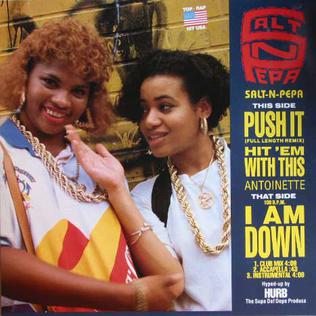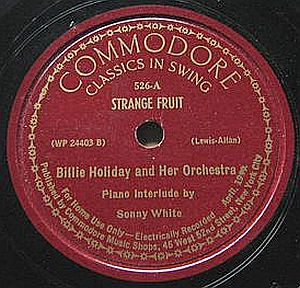Song: "Roundabout"
Album: Fragile
Year: 1972
CLICK HERE TO LISTEN (will open in new tab)
While many cite it as a negative trend, it is not surprising that bands who manage to endure over long periods of time end up altering their sound in some way or another, often "keeping current" with shifts in society and recording technology. Though this happens to almost every band with such longevity, it is those few groups that make a point to stick to their original sound that become uniquely significant in the overall history of music. Furthermore, it is rather astonishing to observe that among these elite few bands who sound today much like they did when they began, with each new generation, they are rediscovered, and therefore their sound really never goes "out of style." While there are not band bands to achieve such a status, it is impossible to argue this is the exact scenario that has turned progressive rock pioneers Yes into the icons that they are within the modern music scene. Bringing a sound that dates back to the tail-end of the 1960's, it is the elaborate orchestrations and exceptional musicianship that defines them, and throughout the 1970's, it was largely their efforts that continued to push forward and develop the sound of rock music. When discussing Yes, one can easily argue a number of albums as their finest work, as when they were at their peek, they new few musical peers. However, one can easily understand just why they are held in such high regard by experiencing Yes' iconic 1972 single, "Roundabout."
Similar to a number of songs of the era, "Roundabout" often falls into the category of songs that people know quite well, but are unaware of its lineage or "who" actually performs the song. Yet perhaps moreso than any other song in history, there is literally so much going on throughout "Roundabout" that it requires multiple listenings to grasp it all. After the delightful, meandering acoustic guitar introduction from Steve Howe, the rest of the band drops in all at once, and the most significant element to jump out becomes the brilliant bassline from Chris Squire. This represents one of the first recorded instances of a rock-style bassist playing more of a lead part than "just" the rhythm, and his fluttering, high-speed performance is without question one of the defining bass recordings in all of music history. The way that Squire interacts with the similarly mind-blowing keyboard from Rick Wakeman is in many ways what has become the trademark tone of "Roundabout," and many point to Wakeman's performance as just as definitive a moment as Squire's. The fact that two showings of such exceptional quality co-exist on the same song would be enough to make it a classic, but the final touch of drumming and percussion from Bill Bruford truly pushes the song into a category all its own. The way in which all of the sounds work perfectly around one another remains just as uniquely impressive today as it did nearly four decades ago, and it helps "Roundabout" to become one of very few songs that never sounds "old" or "dated."
Though it is the musical arrangement on "Roundabout" that defines the band, there is no question that the voice of Jon Anderson is just as synonymous. Possessing what is easily one of the most instantly recognizable voices in all of music history, it is also the drama and intrigue that Anderson brings to his vocals that make them so distinctive, and his performance on "Roundabout" is certainly one of his finest. Working largely in the upper registers of the musical scale, Anderson separates himself from many of his peers in the fact that his voice seems far more relaxed and proper when working this range. It is also the way that Anderson is able to give the song an almost nervous sense of urgency with his singing, and this also enables "Roundabout" to gain a rather unique sense of movement. This tone fits perfectly, as the lyrics were actually written whilst he was driving to the recording studio one morning, and yet at the same time, the words are slightly mysterious in nature. Yet within his brilliant performance, every listener can easily take their own line as "their favorite," as even though parts may make little sense, there is a beautiful flow and elegance to each line. Whether one takes it as simply describing the feeling of music or a more natural, if not ethereal theme, Anderson delivers a dazzling performance that leaves each interpretation of "Roundabout" equally satisfying.
However, the fact of the matter is, as absolutely extraordinary as "Roundabout" is, most people have only heard the completely butchered "radio edit" version of the song. This cut eliminates a majority of the true musical mastery that is on display, leaving a dismal three and a half minutes to be enjoyed. The full version found on Fragile runs more than five minutes longer than the edit, and it is almost impossible to comprehend how any band or management could let such a large portion of a song be cut for any reason. Thankfully, as the years have passed, many radio stations have switched and played the full version, giving Yes their full credit for this extraordinary musical achievement. Furthermore, "Roundabout" has found its way into many parts of popular culture, with one of the most appropriate "nods" coming in the film School of Rock, when the playing of Wakeman is cited as the inspiration for a child to study. Yet even without acknowledgments of this nature, the fact that "Roundabout" still receives regular airplay is a testament to its impact, and one cannot deny the fact that played alongside modern music, the song can still easily hold its own. There are very few recordings that so perfectly capture a band at their creative peak at the same time as that of their talents, but this is exactly what one can experience throughout Yes' absolutely astounding 1972 masterpiece, "Roundabout."














